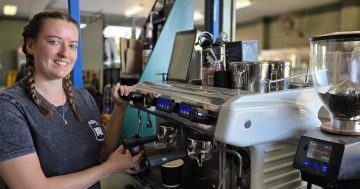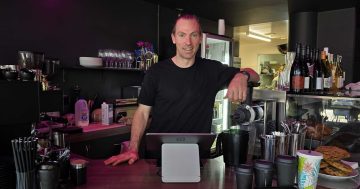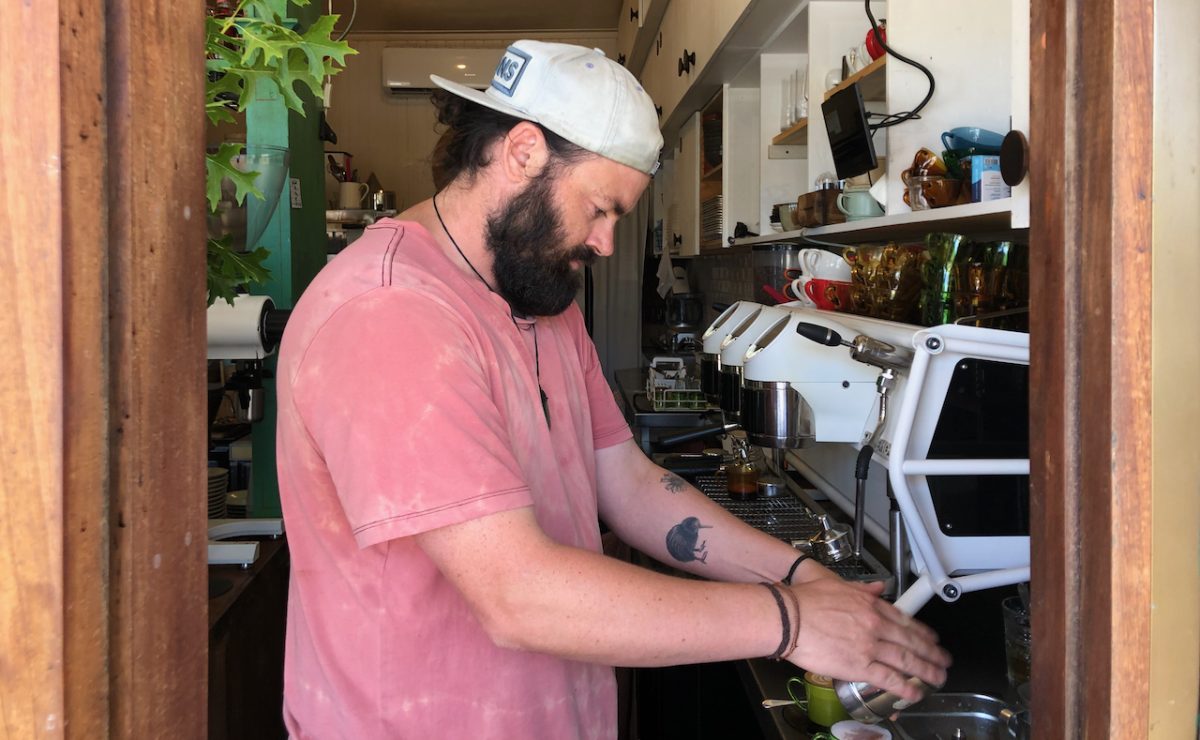
Yuki Bird of Mister Hope Espresso in Bermagui was the driving force of Bermagui’s cafes putting an end to single-use coffee cups. Photo: Marion Williams.
Bermagui is the first town in Australia where cafes have come together to end the use of single-use coffee cups.
They are joining a closed loop return-and-reuse system called Good Reusables.
The cups can be reused around 1000 times. The cups are then returned to the manufacturer in Brisbane for shredding and recycling.
Bermagui’s cafes went single-use free on Sunday 1 December. It will stop nearly 200,000 single-use cups going into landfill every year, plus save the cafes money.
Jonas Benedikt is the founder of Good Reusables, a NSW-based social enterprise that provides sustainable cups and bowls to the hospitality industry.
He used to run Germany’s first carbon-neutral and certified organic cafe. It used a product called Recups.
When he moved to Australia around two years ago there was nothing similar, so he developed an Australian-made solution.
He said their cups offer coffee drinkers a better experience than single-use cups. “They are thicker, better insulated and the lid fits tightly,” Mr Benedikt said.
The cups are made from a food-grade, BPA-free polypropylene plastic like the original material used for KeepCups.
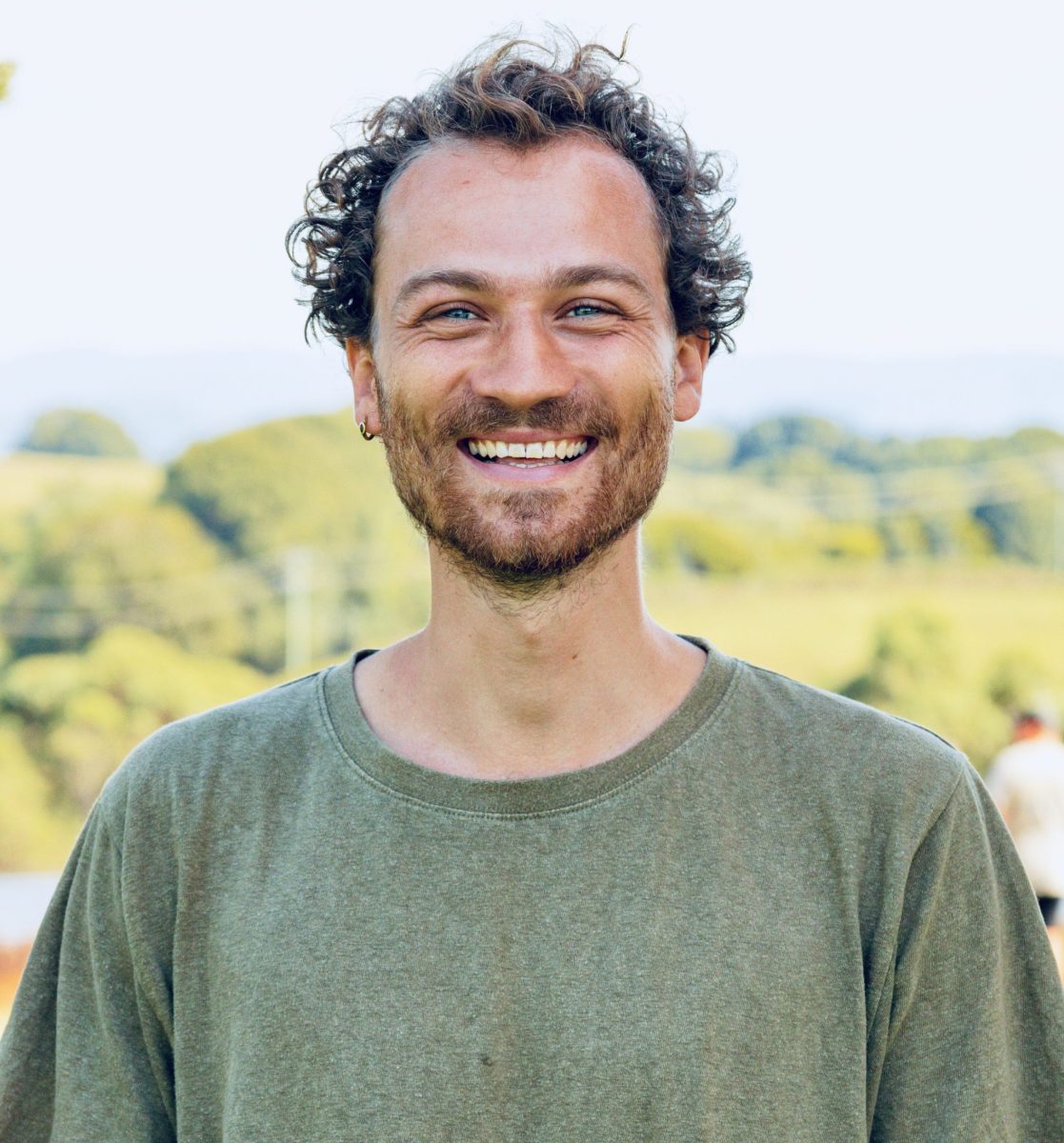
Jonas Benedikt, founder of NSW-based social enterprise Good Reusables. Photo: Supplied.
Yuki Bird of Mister Hope in Bermagui was the driver of the town’s cafes dispensing with single-use cups.
Cafes pay a $3 deposit for each cup. In turn, each customer pays the cafe a $3 deposit for the cup. The deposit is intended to be enough to stop people throwing the cups into the bin.
“They are incredibly durable, but if the cup breaks, people still get their $3 deposit back and the cafe gets its $3 deposit back,” Mr Bird said.
People can use the cups however they like. They can return the cup to any cafe after a walk on the beach or immediately after they finish the coffee.
“I stopped giving takeaway cups to customers because so many just stand outside and talk,” Mr Bird said.
Users are encouraged to return the cups to a participating cafe as soon as possible for reuse. However, they can keep the cup in their car to exchange for a clean one the next time they buy a coffee.
Given how many holidaymakers and day trippers come to Bermagui, the system had to cater for visitors.
Visitors can either return the cup before they leave Bermagui and get their $3 deposit back or take the cup with them to return or use at other participating cafes in Australia. There are cafes in NSW, Victoria, Queensland, and the Northern Territory using the Good Reusables system.
Mr Bird said the hospitality industry had been grappling with the issue of ending single-use cups for years.
When he proposed the idea in Bermagui however “it was like popping a cork on a bottle of ideas that were already there”.
A common blocker for the industry has been fears they will lose customers to the cafe next door if they stop offering single-use cups.
“The fact the cafes have come together alleviates that worry. Particularly if the cafes are on the same block, one would not move without the other,” he said. “The relatively strong support from everyone is what got the compass moving.”
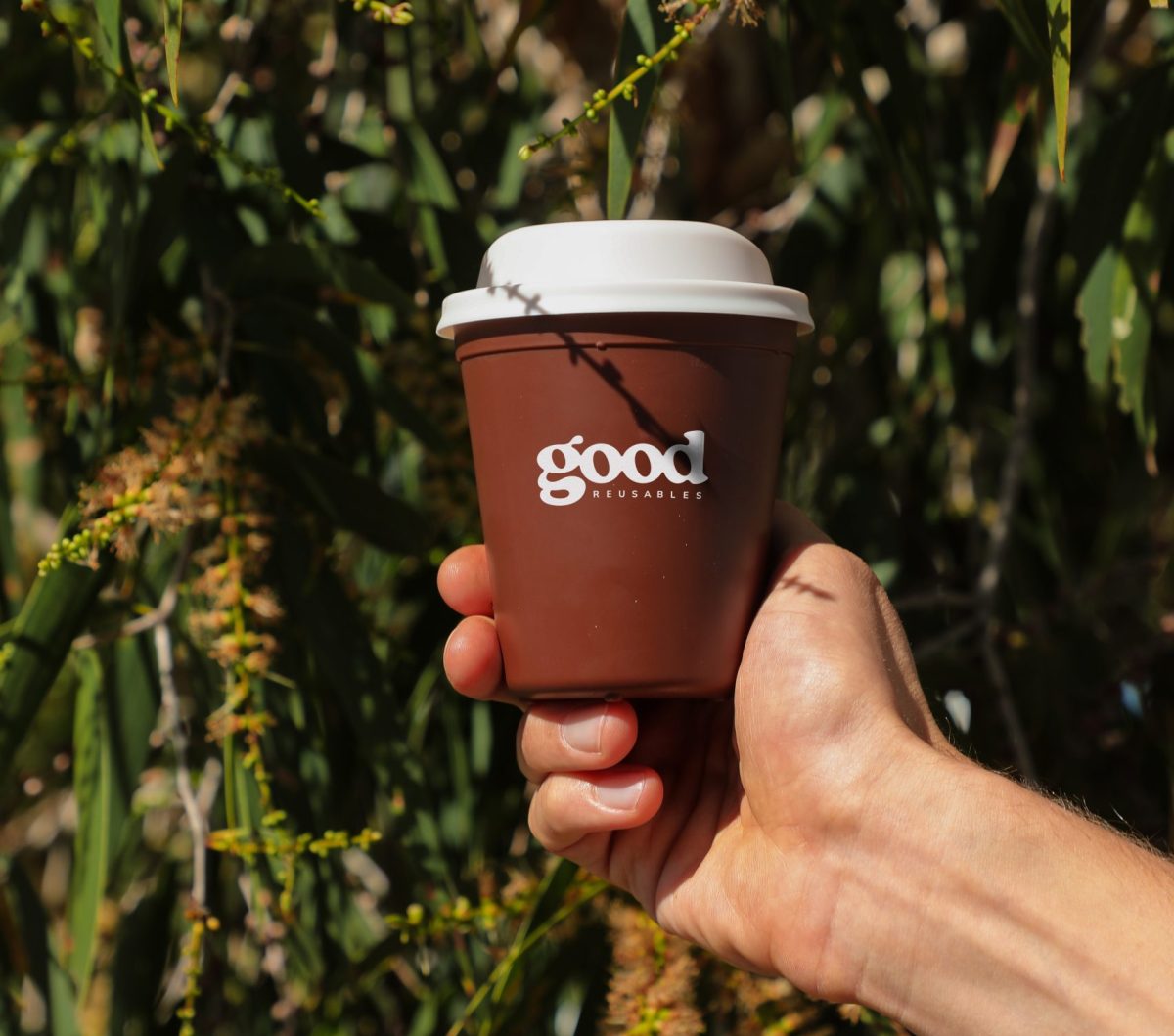
A German system similar to Good Reusables is available in around 20,000 hospitality outlets in Germany. Photo: Supplied.
He said it was very brave of Bermagui’s cafes to make the shift ahead of the critical summer trading season.
“We could wait until after summer which would be safer or think about how many cups we save from landfill if we go now, so the speed is to be applauded,” he said. The first conversations were only a month ago.
Mr Bird said Good Reusables was a proven and convenient system with a pedigree that most systems didn’t have, and it was extremely affordable for the cafes.
“It will save money and some cafes will save a lot of money,” he said. “The industry isn’t making a lot of money so saving thousands of dollars a year is nothing to sneeze at.”
Mr Benedikt said most people were not aware that many cups marketed as recyclable or compostable ended up in landfill because only about 10 in more than 500 councils in Australia had access to the composting facilities required. He said it also took about a litre of water to make just one single-use cup.
The mission of Good Reusables is to replace single-use packaging in the hospitality industry.
“In every aspect, single-use is the worst – the coffee drinking experience, the sustainability aspect, and the cost for business,” Mr Benedikt said.
“It is important to be realistic about what we can change. For us, it’s about giving Australians the freedom to drink coffee when and how they like. We simply provide a system that allows everybody to do it sustainably.”
Original Article published by Marion Williams on About Regional.







